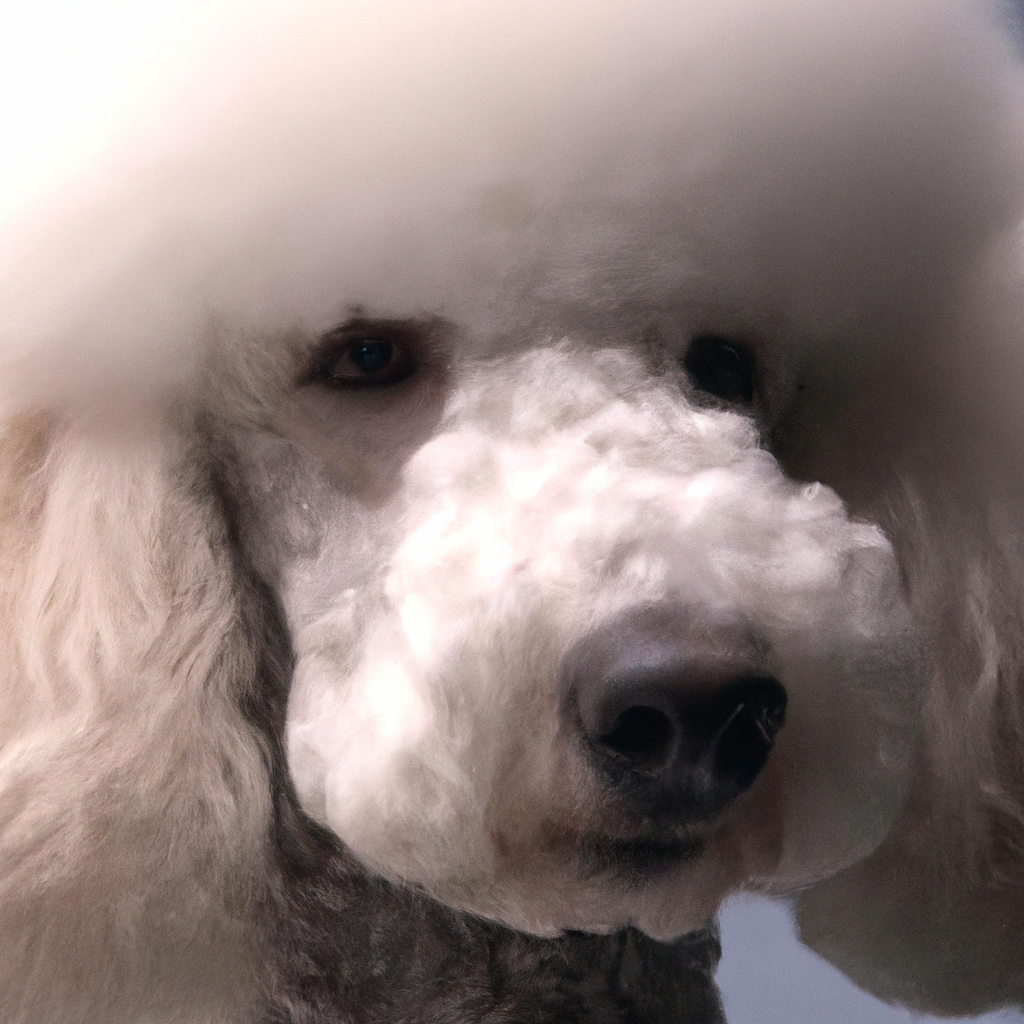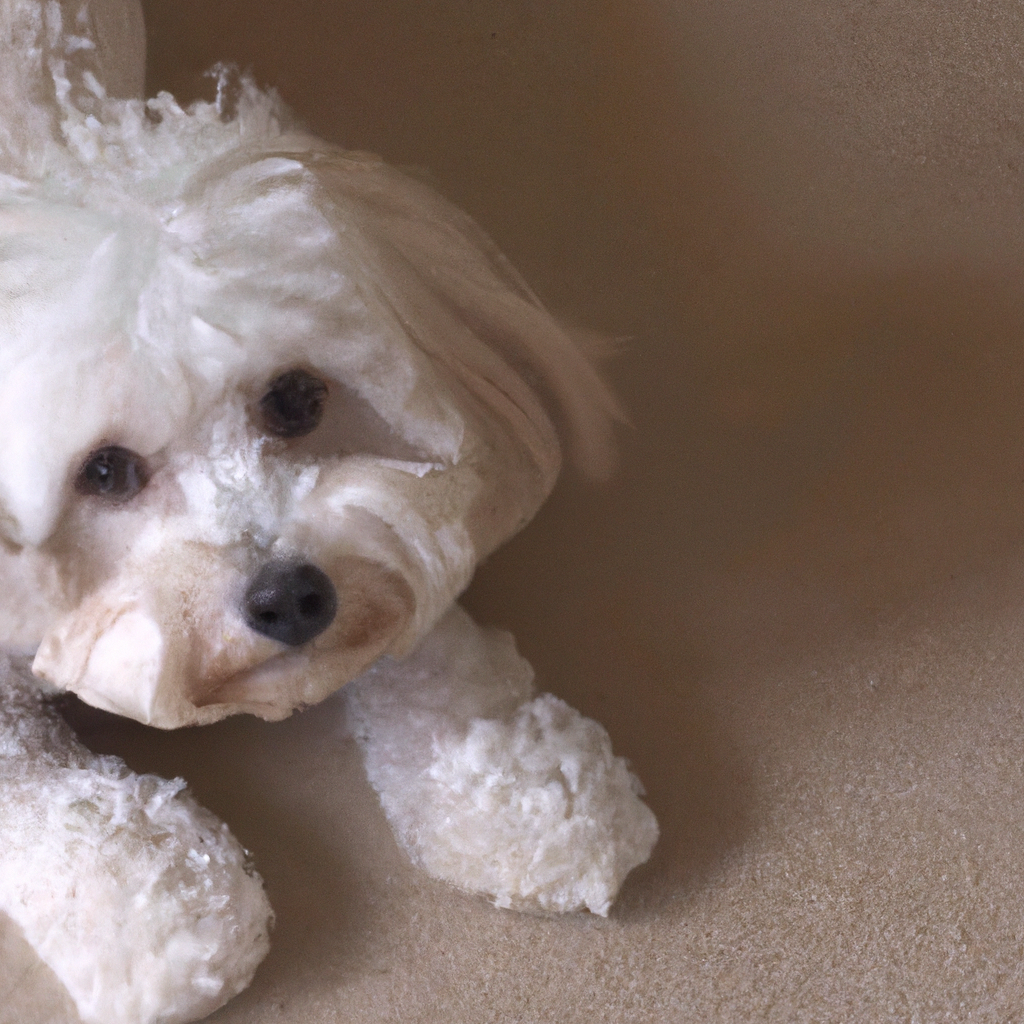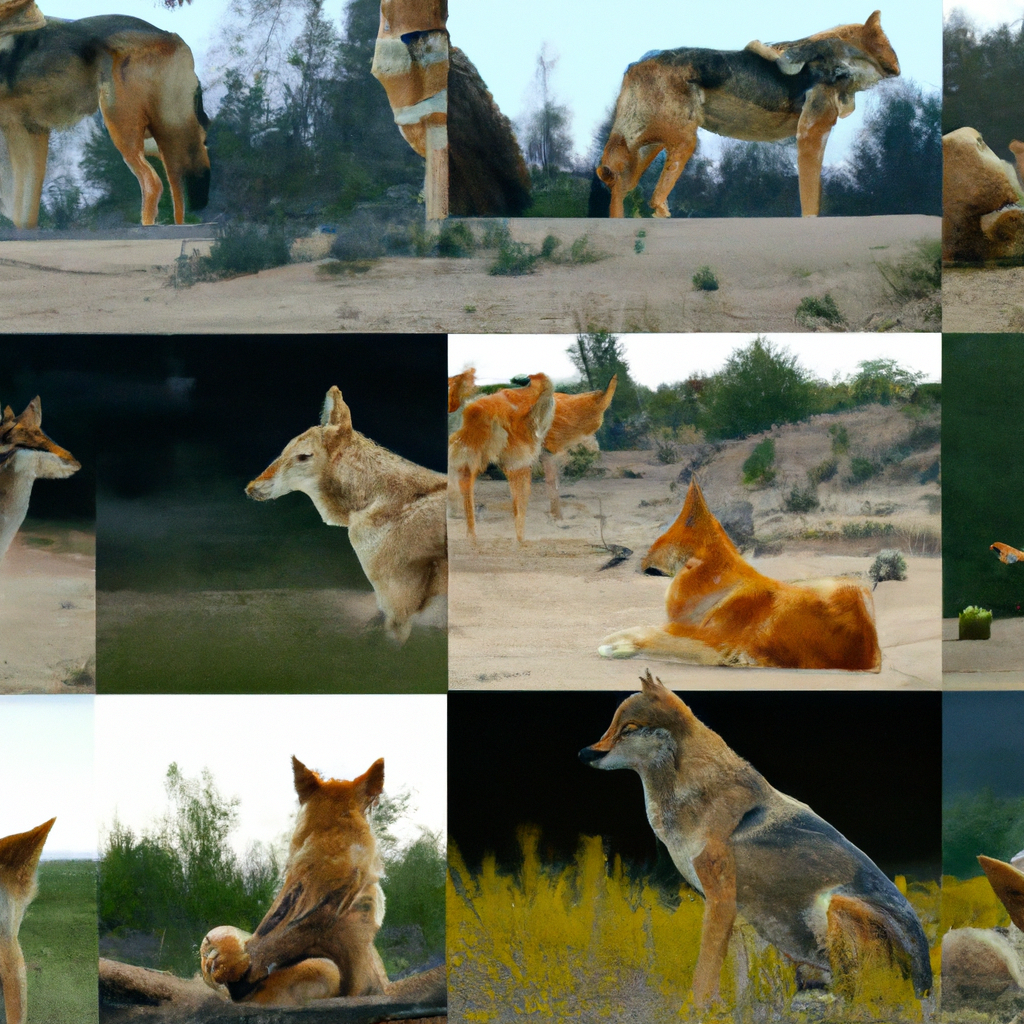“Discover the beauty and intelligence of American Eskimo Dogs with our comprehensive guide.”
American Eskimo Dogs, also known as Eskies, are a breed of dog that originated in Germany but became popular in the United States in the early 20th century. They are known for their fluffy white coat, pointed ears, and playful personality. In this article, we will explore the characteristics, facts, and more about American Eskimo Dogs.
History of American Eskimo Dogs
American Eskimo Dogs, also known as Eskies, are a breed of dog that originated in Germany. Despite their name, they have no connection to the Eskimo culture or people. The breed was developed in the late 19th century by German immigrants who brought their Spitz-type dogs with them to the United States. These dogs were then bred with other Spitz-type dogs, such as the Keeshond and the Pomeranian, to create the American Eskimo Dog we know today.
The American Eskimo Dog was originally used as a watchdog on farms and in homes. They were also used in circuses and traveling shows due to their intelligence and ability to learn tricks quickly. In the early 20th century, the breed became popular as a companion dog and was recognized by the American Kennel Club in 1995.
One of the most distinctive features of the American Eskimo Dog is their white, fluffy coat. This coat is made up of two layers: a dense undercoat and a longer, coarser outer coat. The coat is easy to maintain and only requires regular brushing to prevent matting and tangling.
American Eskimo Dogs are a small to medium-sized breed, standing between 15 and 19 inches tall at the shoulder and weighing between 20 and 35 pounds. They have a compact, muscular build and a wedge-shaped head with erect ears. Their eyes are dark and almond-shaped, giving them an intelligent and alert expression.
In terms of temperament, American Eskimo Dogs are known for being friendly, outgoing, and intelligent. They are highly trainable and excel in obedience and agility competitions. They are also loyal and affectionate with their families, making them great family pets. However, they can be wary of strangers and may bark to alert their owners of any perceived threats.
One thing to keep in mind when considering an American Eskimo Dog as a pet is their high energy level. They require daily exercise and mental stimulation to prevent boredom and destructive behavior. They also thrive on human interaction and may become anxious or destructive if left alone for long periods of time.
In terms of health, American Eskimo Dogs are generally a healthy breed with a lifespan of 12 to 15 years. However, like all breeds, they are prone to certain health issues such as hip dysplasia, progressive retinal atrophy, and dental problems. Regular veterinary check-ups and a healthy diet can help prevent these issues.
In conclusion, the American Eskimo Dog is a unique and lovable breed with a rich history. They make great family pets and excel in obedience and agility competitions. However, they require daily exercise and mental stimulation to prevent boredom and destructive behavior. With proper care and attention, an American Eskimo Dog can be a loyal and loving companion for many years to come.
Physical Characteristics of American Eskimo Dogs
American Eskimo Dogs, also known as Eskies, are a breed of dog that originated in Germany. They were brought to the United States in the early 1900s and quickly became popular as circus performers due to their intelligence and agility. Today, they are beloved family pets known for their fluffy white coats and friendly personalities.
One of the most distinctive physical characteristics of American Eskimo Dogs is their coat. They have a thick, double-layered coat that is white or cream in color. The outer layer is long and straight, while the undercoat is soft and dense. This coat helps to protect them from the cold, which is why they are sometimes referred to as “spitz” dogs.
In addition to their coat, American Eskimo Dogs have other physical features that make them stand out. They have a wedge-shaped head with a pointed muzzle and erect ears. Their eyes are dark and almond-shaped, giving them an alert and intelligent expression. They also have a plumed tail that curls over their back.
American Eskimo Dogs are a medium-sized breed, with males typically weighing between 30 and 40 pounds and females weighing between 20 and 30 pounds. They are muscular and well-proportioned, with a square-shaped body and a level topline. Their legs are straight and strong, allowing them to move quickly and gracefully.
One thing to note about American Eskimo Dogs is that they are prone to certain health issues. Like many breeds, they can develop hip dysplasia, which is a condition where the hip joint doesn’t develop properly. They are also at risk for progressive retinal atrophy, which can lead to blindness. It’s important to work with a reputable breeder and to keep up with regular veterinary check-ups to ensure that your Eskie stays healthy.
Despite their fluffy appearance, American Eskimo Dogs are actually quite low-maintenance when it comes to grooming. Their coat doesn’t shed much, so they only need to be brushed once or twice a week to keep it looking its best. They also don’t have a strong doggy odor, so they don’t need to be bathed frequently.
In terms of exercise, American Eskimo Dogs are fairly active and need daily walks or playtime to stay healthy and happy. They are also intelligent and enjoy learning new things, so training and mental stimulation are important for their well-being. They do well in a variety of living situations, from apartments to houses with yards, as long as they get enough exercise and attention.
In conclusion, American Eskimo Dogs are a beautiful and unique breed with many distinctive physical characteristics. Their fluffy white coat, wedge-shaped head, and plumed tail make them instantly recognizable. While they are prone to certain health issues, they are generally low-maintenance when it comes to grooming and make great family pets. If you’re considering adding an American Eskimo Dog to your family, be sure to do your research and find a reputable breeder who can help you find the perfect pup for your lifestyle.
Personality Traits of American Eskimo Dogs
American Eskimo Dogs, also known as Eskies, are a breed of dog that originated in Germany. They were brought to the United States in the early 1900s and quickly became popular due to their intelligence, loyalty, and playful nature. In this article, we will explore the personality traits of American Eskimo Dogs and what makes them such a beloved breed.
One of the most notable personality traits of American Eskimo Dogs is their intelligence. They are quick learners and excel in obedience training. This makes them a great choice for families who want a dog that can be easily trained and will follow commands. Eskies are also known for their problem-solving skills and can figure out how to get what they want, whether it’s a treat or a toy.
Another personality trait of American Eskimo Dogs is their loyalty. They are fiercely devoted to their owners and will do anything to protect them. This loyalty extends to their family members, and they are known to be great with children. Eskies are also very social and love to be around people. They thrive on attention and affection and will often follow their owners around the house.
Despite their small size, American Eskimo Dogs are very active and playful. They love to run, jump, and play, and they have a lot of energy. This makes them a great choice for families who want a dog that can keep up with their active lifestyle. Eskies also love to play fetch and will happily chase after a ball for hours on end.
One thing to keep in mind when considering an American Eskimo Dog is their tendency to bark. They are very vocal and will bark at anything that they perceive as a threat. This can be a problem if you live in an apartment or have close neighbors. However, with proper training, you can teach your Eskie when it’s appropriate to bark and when it’s not.
Another personality trait of American Eskimo Dogs is their independence. They are not clingy dogs and are perfectly content to spend time alone. This makes them a great choice for people who work long hours or who have busy schedules. However, it’s important to note that Eskies still need plenty of exercise and attention, even if they are independent.
In conclusion, American Eskimo Dogs are a wonderful breed with many great personality traits. They are intelligent, loyal, playful, and independent, making them a great choice for families and individuals alike. However, it’s important to remember that every dog is different, and you should always do your research before bringing a new pet into your home. With proper training and care, an American Eskimo Dog can be a loving and loyal companion for many years to come.
Training and Exercise for American Eskimo Dogs
Training and Exercise for American Eskimo Dogs
American Eskimo Dogs are highly intelligent and energetic dogs that require regular exercise and training to keep them happy and healthy. These dogs are known for their playful and affectionate nature, but they can also be stubborn and independent at times. Therefore, it is important to start training and exercising your American Eskimo Dog from a young age to ensure that they develop good habits and behaviors.
Training
Training your American Eskimo Dog is essential to ensure that they are well-behaved and obedient. These dogs are highly intelligent and can learn a variety of commands and tricks. However, they can also be stubborn and independent, so it is important to be patient and consistent with your training.
One of the most important aspects of training your American Eskimo Dog is socialization. These dogs can be wary of strangers and other dogs, so it is important to expose them to different people and animals from a young age. This will help them to develop good social skills and reduce the risk of aggression or fearfulness.
Positive reinforcement is also an effective training method for American Eskimo Dogs. This involves rewarding your dog for good behavior, such as sitting or staying on command. Treats, praise, and toys can all be used as rewards to encourage your dog to repeat good behavior.
Exercise
American Eskimo Dogs are energetic dogs that require regular exercise to keep them healthy and happy. These dogs love to play and run, so it is important to provide them with plenty of opportunities to do so.
Daily walks are essential for American Eskimo Dogs, as they need to burn off their excess energy. A brisk walk or jog for 30-60 minutes a day is recommended to keep your dog in good physical condition. Playing fetch or other games with your dog can also provide them with the exercise they need.
In addition to physical exercise, mental stimulation is also important for American Eskimo Dogs. These dogs are highly intelligent and need to be mentally challenged to prevent boredom and destructive behavior. Puzzle toys, obedience training, and agility courses are all great ways to provide your dog with mental stimulation.
Conclusion
Training and exercise are essential for American Eskimo Dogs to ensure that they are well-behaved and healthy. These dogs are highly intelligent and energetic, so it is important to provide them with plenty of opportunities to learn and play. Positive reinforcement and socialization are effective training methods, while daily walks and mental stimulation are important for exercise. With proper training and exercise, your American Eskimo Dog can be a happy and well-behaved companion for many years to come.
Health Concerns for American Eskimo Dogs
American Eskimo dogs are a beautiful and intelligent breed that make great companions. However, like all dogs, they are prone to certain health concerns that owners should be aware of. In this article, we will discuss some of the most common health issues that American Eskimo dogs may face.
One of the most significant health concerns for American Eskimo dogs is hip dysplasia. This is a genetic condition that affects the hip joint, causing pain and discomfort. It can lead to arthritis and mobility issues if left untreated. To prevent hip dysplasia, it is essential to purchase your American Eskimo dog from a reputable breeder who screens their dogs for this condition.
Another common health issue for American Eskimo dogs is progressive retinal atrophy (PRA). This is a genetic condition that affects the retina, leading to vision loss and blindness. Unfortunately, there is no cure for PRA, but early detection can help slow the progression of the disease. Regular eye exams are crucial for detecting PRA in its early stages.
American Eskimo dogs are also prone to allergies. They may develop skin allergies, food allergies, or environmental allergies. Symptoms of allergies include itching, redness, and inflammation. If you suspect that your American Eskimo dog has allergies, it is essential to consult with your veterinarian to determine the cause and develop a treatment plan.
Dental health is another important aspect of American Eskimo dog care. Like all dogs, American Eskimo dogs are prone to dental problems such as tartar buildup, gum disease, and tooth decay. Regular dental cleanings and at-home dental care can help prevent these issues and keep your dog’s teeth and gums healthy.
Obesity is a common health concern for American Eskimo dogs. These dogs have a tendency to gain weight, which can lead to health problems such as diabetes, heart disease, and joint problems. To prevent obesity, it is essential to provide your American Eskimo dog with a healthy diet and plenty of exercise.
Finally, American Eskimo dogs are prone to certain autoimmune diseases such as lupus and autoimmune hemolytic anemia. These conditions occur when the immune system attacks the body’s own cells and tissues. Symptoms may include lethargy, fever, and loss of appetite. Treatment for autoimmune diseases typically involves medication to suppress the immune system and manage symptoms.
In conclusion, American Eskimo dogs are a wonderful breed that make great pets. However, like all dogs, they are prone to certain health concerns that owners should be aware of. Regular veterinary care, a healthy diet, and plenty of exercise can help prevent many of these issues. If you suspect that your American Eskimo dog has a health problem, it is essential to consult with your veterinarian for proper diagnosis and treatment. With proper care, your American Eskimo dog can live a long and healthy life.
Q&A
1. What is the average lifespan of an American Eskimo Dog?
– The average lifespan of an American Eskimo Dog is 12-15 years.
2. What is the size of an American Eskimo Dog?
– American Eskimo Dogs come in three sizes: toy (9-12 inches), miniature (12-15 inches), and standard (15-19 inches).
3. Are American Eskimo Dogs good with children?
– Yes, American Eskimo Dogs are generally good with children and make great family pets.
4. What is the temperament of an American Eskimo Dog?
– American Eskimo Dogs are intelligent, playful, and affectionate. They can be reserved with strangers but are generally friendly.
5. Do American Eskimo Dogs shed a lot?
– Yes, American Eskimo Dogs have a thick, double coat that sheds heavily twice a year. Regular grooming is necessary to keep their coat healthy and reduce shedding.American Eskimo Dogs are a breed of dog that originated in Germany and were brought to the United States in the early 20th century. They are known for their fluffy white coat, pointed ears, and playful personality. They are intelligent, loyal, and make great family pets. They require regular exercise and grooming to keep their coat healthy. Overall, American Eskimo Dogs are a wonderful breed for those looking for a loving and active companion.





